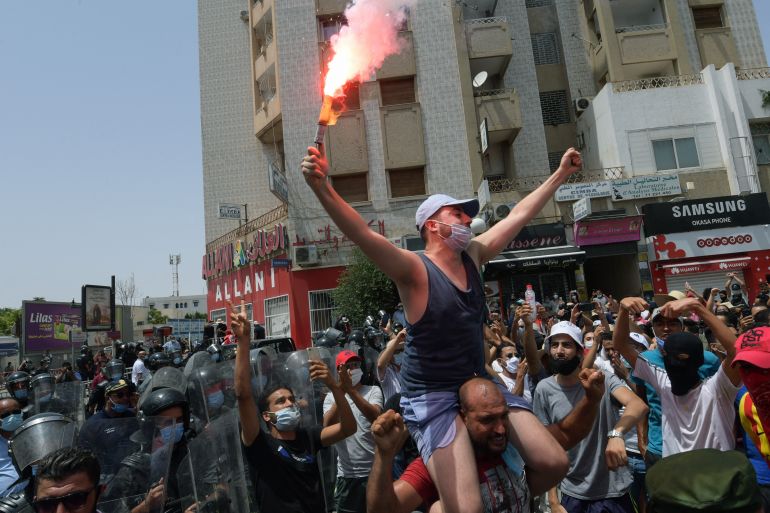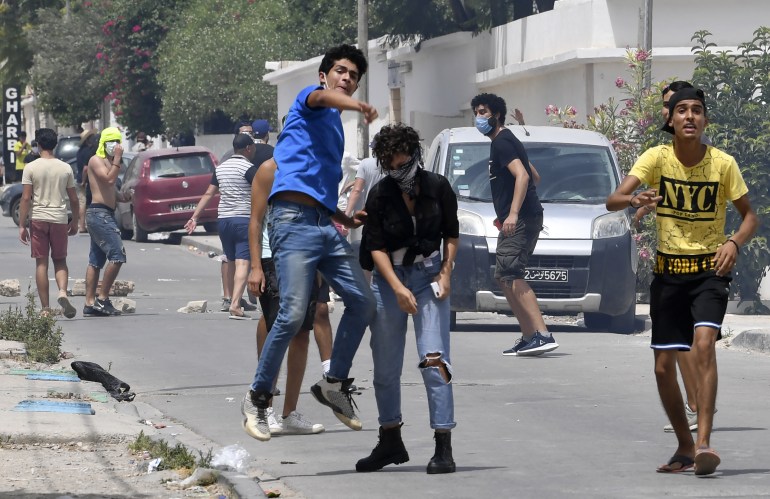Tunisians protest as COVID surges, economy suffers
Police used pepper spray on protesters in Tunis who threw stones and demanded Prime Minister Hichem Mechichi quit, parliament be dissolved.

Police and protesters have clashed in several Tunisian cities as demonstrators demanding the government step down after a spike in COVID-19 cases that has aggravated economic troubles attacked offices of Ennahda, the biggest party in parliament.
In Tunis on Sunday, police used pepper spray against protesters who threw stones and shouted slogans demanding that Prime Minister Hichem Mechichi quit and parliament be dissolved.
Keep reading
list of 3 itemsSlowest to qualify, Tunisian Hafnaoui wins Olympic swimming gold
Tunisia reports highest COVID death toll since start of pandemic
Witnesses said protesters stormed or tried to storm Ennahda offices in Monastir, Sfax, El Kef and Sousse, while in Touzeur they set fire to the party’s local headquarters.
The protests raise pressure on a fragile government that is enmeshed in a political struggle with President Kais Saied, who is trying to avert a looming fiscal crisis amid a weeks-long spike in COVID-19 cases and increased death rates.
The pandemic has hit Tunisia as it struggles to lift an economy that has suffered since its 2011 revolution, undermining public support for democracy as unemployment surged and state services declined.

“Our patience has run out … there are no solutions for the unemployed,” Nourredine Selmi, 28, a jobless protester, told Reuters news agency. “They cannot control the epidemic … They can’t give us vaccines.”
Last week, Mechichi sacked the health minister after chaotic scenes at walk-in vaccination centres during the Muslim Eid al-Adha holiday, where large crowds queued for inadequate supplies of vaccine.
The ministry said earlier this month that Tunisia’s health system had “collapsed” under the weight of the pandemic, which has caused more than 17,000 deaths in a population of about 12 million.
After a year of wrangling with Mechichi and the leader of Ennahda, Rached Ghannouchi, who is also parliament speaker, President Saied declared the army would take over the pandemic response.
Some analysts saw the move by Saied as an attempt to expand his powers beyond the foreign and military role assigned to the president in the 2014 constitution.
Government paralysis could derail efforts to negotiate an International Monetary Fund loan seen as crucial to stabilising state finances but which could also involve spending cuts that would aggravate economic pain for ordinary people.